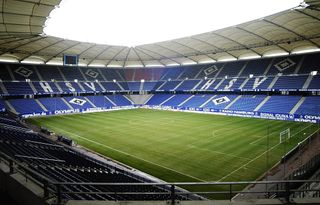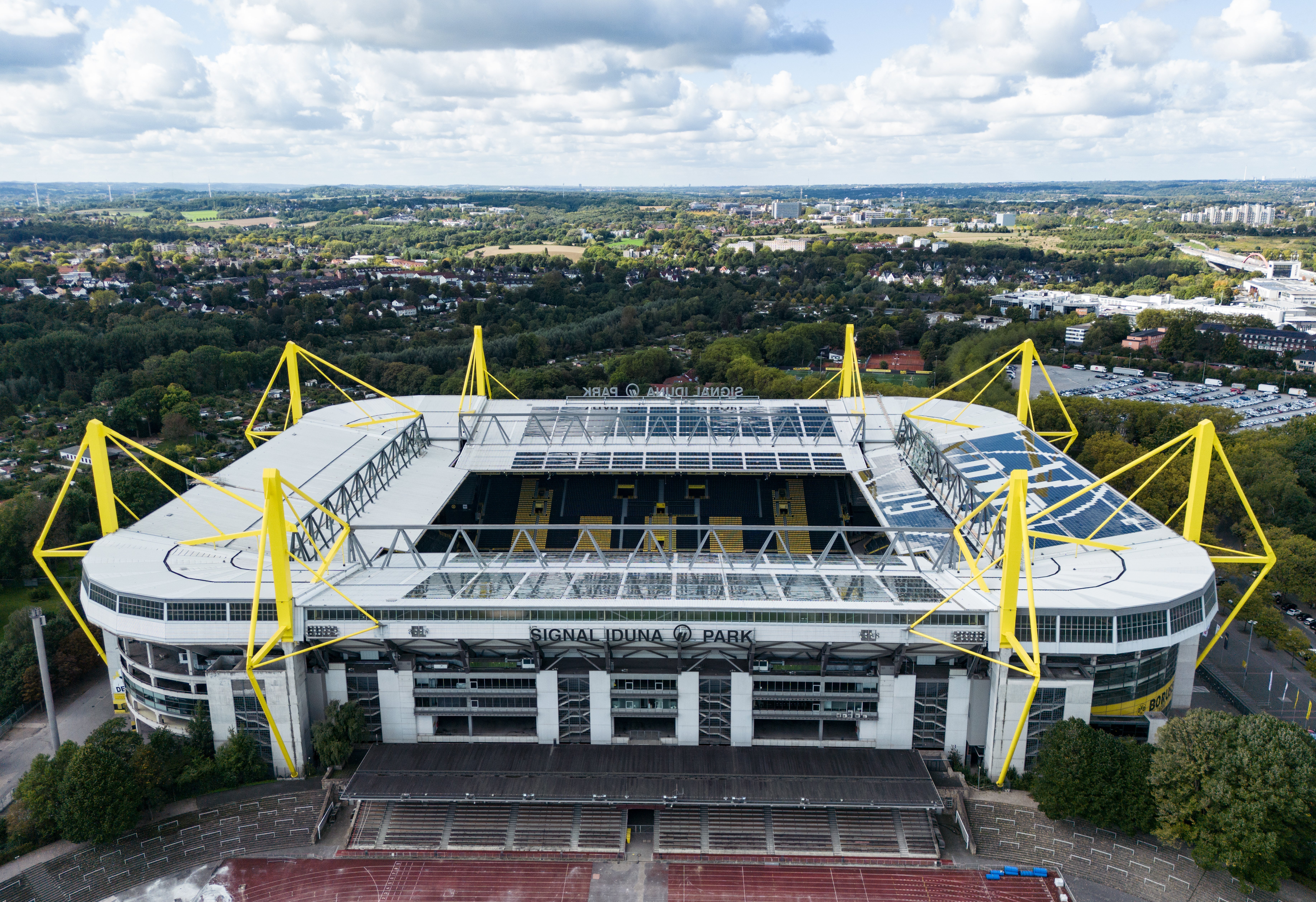Euro 2024 Venue Schedule Stadiums and Cities
₫2.309.869
Euro 2024 Venue Schedule Stadiums and Cities
Product description
The UEFA European Football Championship, commonly referred to as the Euros, is one of the most highly anticipated sporting events in Europe. It is an international men's football tournament organized by the Union of European Football Associations (UEFA) and held every four years. The next edition of the Euros, Euro 2024, will be hosted by Germany and will see 24 teams compete for the title of European champions.
One of the crucial aspects of any major tournament is its venue schedule. In this article, we will take a closer look at the stadiums and cities that will be hosting the Euro 2024 matches. From iconic landmarks to state-of-the-art facilities, the host cities have a lot to offer both on and off the pitch. So let's dive into the details and get ready for the exciting Euro 2024!
1. Munich - Allianz Arena

Munich, the capital of Bavaria, will be hosting three group stage matches and a quarter-final at the Allianz Arena. This iconic stadium is home to Bundesliga giants Bayern Munich and has a capacity of over 70,000 spectators. It was built in 2005 and has hosted numerous high-profile matches, including the 2012 Champions League final between Bayern Munich and Chelsea.
1.1 Location and Accessibility
The Allianz Arena is located in the north of Munich, about 6 miles from the city center. It is easily accessible via public transport, with a metro station just outside the stadium. There are also plenty of parking spaces for those travelling by car.
1.2 Facilities and Amenities
The stadium boasts state-of-the-art facilities, including a retractable roof and a cutting-edge lighting system. It also has a fan shop, several restaurants and bars, and a museum dedicated to Bayern Munich. The Allianz Arena offers a unique experience for football fans, with its impressive architecture and modern amenities.
1.3 Nearby Attractions
While in Munich, visitors can explore the beautiful English Garden, take a stroll through the old town, or visit the famous Oktoberfest. The city has a rich history and culture, and there is no shortage of things to see and do.
2. Berlin - Olympiastadion

The Olympiastadion in Berlin will host three group stage matches and a quarter-final at Euro 2024. This historic stadium has a capacity of over 74,000 spectators and was originally built for the 1936 Olympics. It has since undergone several renovations and hosted numerous major events, including the 2006 World Cup final.
2.1 Location and Accessibility
The Olympiastadion is located in the west of Berlin, about 4 miles from the city center. It is easily accessible via public transport, with a metro station just outside the stadium. There are also parking facilities for those travelling by car.
2.2 Facilities and Amenities
The stadium has modern facilities, including a retractable roof and a state-of-the-art lighting system. It also has a fan shop, restaurants and bars, and a museum dedicated to the history of the stadium. The Olympiastadion offers a unique blend of history and modernity, making it an ideal venue for Euro 2024.
2.3 Nearby Attractions
Berlin is known for its vibrant art scene, historical landmarks, and diverse culture. Visitors can take a tour of the Brandenburg Gate, visit the East Side Gallery, or explore the Museum Island. The city has something for everyone, making it a must-visit destination during the Euros.
3. Cologne - RheinEnergieStadion

Cologne, a city known for its stunning cathedral and vibrant culture, will be hosting three group stage matches and a round of 16 match at the RheinEnergieStadion. This modern stadium has a capacity of over 50,000 spectators and is home to Bundesliga club FC Koln.
3.1 Location and Accessibility
The RheinEnergieStadion is located in the west of Cologne, around 5 miles from the city center. It is easily accessible via public transport, with a metro station just outside the stadium. There are also plenty of parking spaces for those travelling by car.
3.2 Facilities and Amenities
The stadium boasts modern facilities, including a retractable roof and a state-of-the-art lighting system. It also has a fan shop, restaurants and bars, and a museum dedicated to FC Koln. The RheinEnergieStadion offers a great matchday experience for football fans, with its excellent amenities and lively atmosphere.
3.3 Nearby Attractions
Cologne is known for its stunning Gothic cathedral and charming old town. Visitors can take a stroll along the Rhine river, visit the Chocolate Museum, or enjoy a traditional German meal in one of the many restaurants. The city has a unique charm that will surely captivate visitors during Euro 2024.
4. Hamburg - Volksparkstadion
Hamburg, Germany's second-largest city, will be hosting three group stage matches and a round of 16 match at the Volksparkstadion. This historic stadium has a capacity of over 57,000 spectators and is home to Bundesliga club Hamburger SV.
4.1 Location and Accessibility
The Volksparkstadion is located in the northwest of Hamburg, about 5 miles from the city center. It is easily accessible via public transport, with a metro station just outside the stadium. There are also parking facilities for those travelling by car.
4.2 Facilities and Amenities
The stadium offers modern facilities, including a retractable roof and a state-of-the-art lighting system. It also has a fan shop, restaurants and bars, and a museum dedicated to the history of Hamburger SV. The Volksparkstadion provides a memorable matchday experience for football fans, with its unique blend of history and modernity.
4.3 Nearby Attractions
Hamburg is known for its lively nightlife, stunning harbor, and scenic parks. Visitors can take a boat tour through the harbor, visit the Miniatur Wunderland, or relax in the beautiful Planten un Blomen park. The city has something for everyone, making it an ideal host for Euro 2024.
5. Frankfurt - Commerzbank-Arena
Frankfurt, the financial center of Germany, will be hosting three group stage matches and a round of 16 match at the Commerzbank-Arena. This modern stadium has a capacity of over 51,000 spectators and is the home of Bundesliga club Eintracht Frankfurt.
5.1 Location and Accessibility
The Commerzbank-Arena is located in the south of Frankfurt, about 3 miles from the city center. It is easily accessible via public transport, with a metro station just outside the stadium. There are also parking facilities for those travelling by car.
5.2 Facilities and Amenities
The stadium offers modern facilities, including a retractable roof and a state-of-the-art lighting system. It also has a fan shop, restaurants and bars, and a museum dedicated to Eintracht Frankfurt. The Commerzbank-Arena provides a fantastic matchday experience for football fans, with its impressive design and excellent amenities.
5.3 Nearby Attractions
Frankfurt is known for its stunning architecture, bustling shopping streets, and diverse food scene. Visitors can take a stroll through the old town, visit the Goethe House, or enjoy a traditional German meal in one of the many restaurants. The city has something for everyone, making it an exciting host for Euro 2024.
6. Leipzig - Red Bull Arena
Leipzig, a city known for its rich history and vibrant culture, will be hosting three group stage matches and a round of 16 match at the Red Bull Arena. This modern stadium has a capacity of over 42,000 spectators and is home to Bundesliga club RB Leipzig.
6.1 Location and Accessibility
The Red Bull Arena is located in the west of Leipzig, around 2 miles from the city center. It is easily accessible via public transport, with a metro station just outside the stadium. There are also parking facilities for those travelling by car.
6.2 Facilities and Amenities
The stadium offers modern facilities, including a retractable roof and a state-of-the-art lighting system. It also has a fan shop, restaurants and bars, and a museum dedicated to RB Leipzig. The Red Bull Arena provides a unique matchday experience for football fans, with its modern design and excellent amenities.
6.3 Nearby Attractions
Leipzig is known for its stunning architecture, lively street art scene, and bustling markets. Visitors can take a tour of the St. Thomas Church, visit the Spinnerei art complex, or explore the lively Karl-Liebknecht-Strasse. The city has something for everyone, making it a fantastic host for Euro 2024.
FAQs
1. What is the format of Euro 2024?
Euro 2024 will follow the same format as the previous edition, with 24 teams qualifying for the tournament. The teams will be divided into six groups of four, and the top two from each group will advance to the knockout stage.
2. When will Euro 2024 take place?
Euro 2024 will take place from 14 June to 14 July 2024.
3. How were the host cities selected?
The host cities were selected by UEFA, based on criteria such as stadium infrastructure, accommodation, transport, and the overall fan experience.
4. Is there a limit on the number of stadiums a city can have for Euro 2024?
No, there is no limit on the number of stadiums a city can have. However, each city must have at least one stadium with a capacity of at least 50,000 spectators.
5. Will there be any new stadiums built for Euro 2024?
Yes, two new stadiums will be built for Euro 2024 - the Merkur Spiel-Arena in Düsseldorf and the Neubau Waldstadion in Frankfurt.
Conclusion
Euro 2024 promises to be an exciting tournament, with some of Europe's top teams competing for the title. The host cities have a lot to offer both on and off the pitch, making it an unforgettable experience for football fans. From iconic landmarks to state-of-the-art facilities, each venue has its own unique charm that will surely add to the thrill of the Euro 2024 matches. So mark your calendars and get ready to witness the best of European football in the beautiful country of Germany!
POSTER SEO_TELEGRAM







